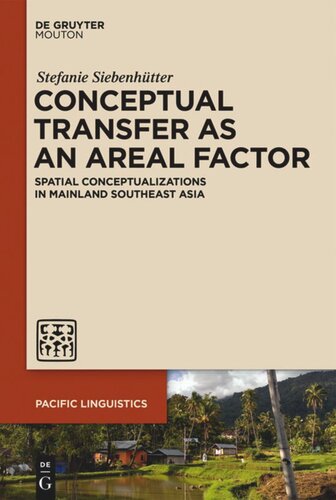

Most ebook files are in PDF format, so you can easily read them using various software such as Foxit Reader or directly on the Google Chrome browser.
Some ebook files are released by publishers in other formats such as .awz, .mobi, .epub, .fb2, etc. You may need to install specific software to read these formats on mobile/PC, such as Calibre.
Please read the tutorial at this link: https://ebookbell.com/faq
We offer FREE conversion to the popular formats you request; however, this may take some time. Therefore, right after payment, please email us, and we will try to provide the service as quickly as possible.
For some exceptional file formats or broken links (if any), please refrain from opening any disputes. Instead, email us first, and we will try to assist within a maximum of 6 hours.
EbookBell Team

0.0
0 reviewsBy analyzing conceptual transfer this volume offers new insight in areal linguistics. Mainland Southeast Asia unifies great linguistic richness consisting of numerous languages and countless varieties of genetically diverse language families. Nevertheless, the area is known as a prime example for linguistic convergence. Exemplified by spatial reference in Thai, Khmer, Lao and Vietnamese, this study reveals conceptual borrowing due to language contact as an areal defining feature. The results from the field-based data analysis may help answer what extent cultural impact can be used as evidence for the existence of linguistic areas. A speaker’s cultural background might have a stronger impact on the choice of spatial language encoding than expected. Method and structure of argumentation can provide a model for similar questions addressing the existence of linguistic areas as well as to other cognitive dimensions within the Southeast Asian area under consideration. Therefore, the study can be seen as a significant contribution to analyze possibly existing conceptual areas empirically and exemplarily. Additionally, the investigation can serve as an important complement to empirical assumptions of conceptual transfer.